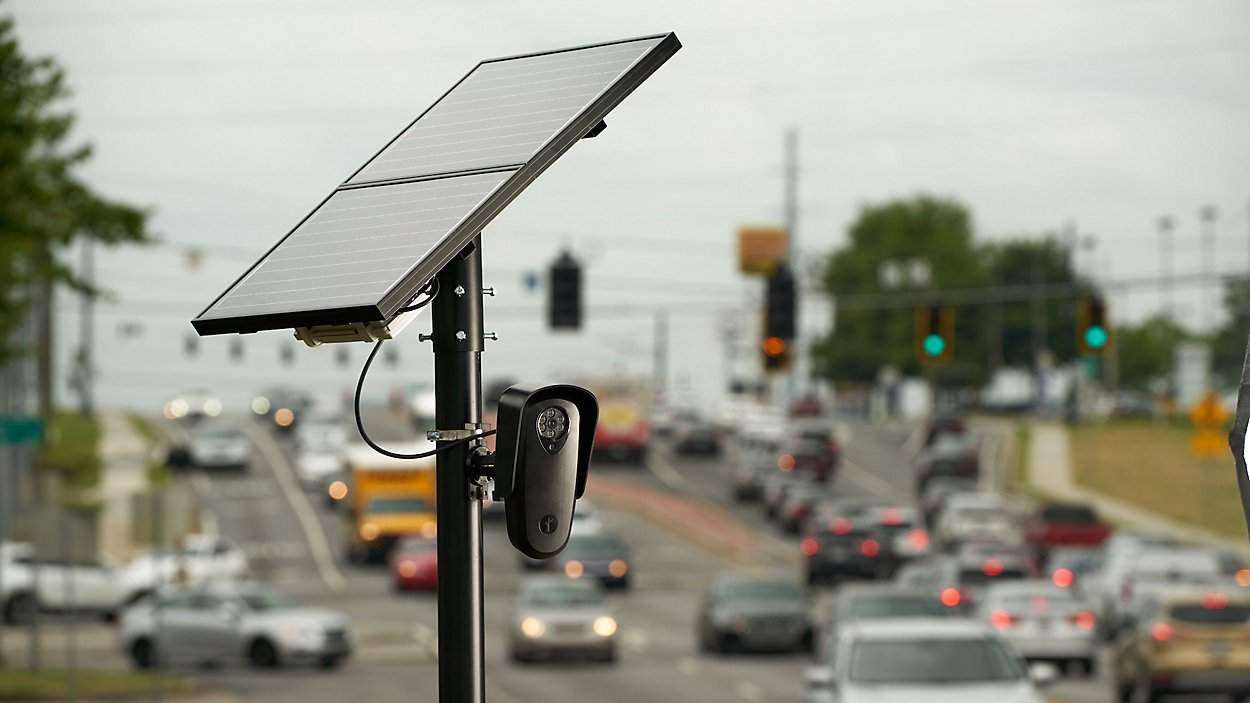Urban County Council to Hear Presentation on Flock License Plate Readers After Lame Duck Expansion

Lexington, Ky.–The Lexington-Fayette Urban County Council will hear a presentation on Flock automatic license plate readers (ALPRs) at a Work Session Tuesday. The Lexington Police Department (LPD) acquired 25 Flock ALPRs in early 2022 for a year-long pilot.
In December, though, a lame duck Council voted to move ahead with leasing 75 extra ALPRs before the pilot was scheduled to wrap up this March. The lame duck vote was widely denounced by advocacy groups such as the ACLU at the time.
According to LPD, Flock ALPRs have helped:
- Recover 129 stolen vehicles with a total value of $1.9 millions dollars
- Locate 15 missing people
- Cut the length of time for stolen vehicle recovery nearly in half
ALPR technology has become increasingly popular in law enforcement agencies worldwide, including the use of Flock ALPRs. However, the technology has been met with various objections and criticisms.
One of the primary objections to Flock ALPRs is the potential violation of privacy rights. ALPR cameras are designed to capture and store license plate data of every vehicle that passes through their view. This data collection can create a massive database of vehicle movements, including information on the location and time of each vehicle’s passage, which can be used to track individuals’ movements. Critics argue that this level of surveillance infringes on people’s privacy and could be abused by law enforcement.
An additional concern is the potential for errors in the system, which could lead to mistaken identities and wrongful arrests. The accuracy of ALPRs has been questioned, with some reports indicating that the systems can misread license plates, especially in situations where the plates are dirty or obscured. Additionally, ALPRs can make mistakes when reading plates that are similar in appearance, leading to false matches and wrongful accusations.
Another criticism of ALPR technology is that it can contribute to the over-policing of minority communities. ALPR cameras are often placed in high-crime areas, which tend to be concentrated in low-income neighborhoods with larger populations of people of color. This targeting can result in increased surveillance and policing of these communities, even for minor offenses. This can lead to a cycle of over-policing, where individuals in these communities are subjected to more traffic stops and encounters with law enforcement, leading to higher rates of arrests and convictions. Critics argue that this can exacerbate existing systemic biases and contribute to the disproportionate targeting of people of color by law enforcement.
Finally, there are concerns about the potential for misuse of ALPR data. The massive databases of license plate data collected by ALPRs can be accessed by law enforcement agencies and potentially other organizations, such as insurance companies and private investigators. This raises questions about who has access to the data, how it is used, and how it is protected from unauthorized access.
Once all Flock Cameras are installed, LPD will post locations of the Cameras publicly. Installation of the remaining cameras will begin soon.
Council Work Session will be held on February 28th at 3pm in Council Chambers. You can watch in-person or live on LexTV.
CivicLex contributed to this report.
You can read about how Flock Cameras work, and their discussions in past Council Meetings, here.
Photo: Flock Safety
Recommended Posts

Kamala Harris needs a VP candidate. Could a governor fit the bill?
Fri, July 26, 2024
After cyber-attack on Jefferson County Clerk, Fayette counterpart discusses precautions
Fri, July 26, 2024
An eastern Kentucky animal shelter is swelling this summer
Fri, July 26, 2024